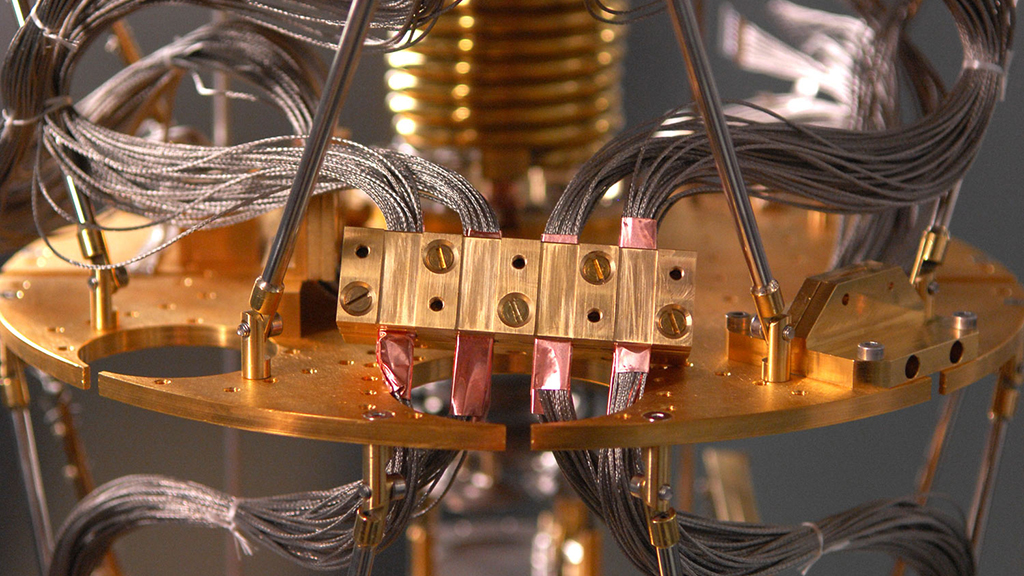
Quantum computers are supposed to represent a giant leap in computing speed for complex solutions like voice recognition, but a new study says the technology isn't any faster than a regular computer.
A newly published study in this week's issue of Science found that the hyped, $15 million (about £8 million/AU$16 million) D-Wave 2 based at the University of Southern California had no quantum leap advantage over a regular PC.
In previous controlled test, D-Wave's owners have demonstrated how its technology can be 3,600 times faster than a classic computer, albeit with a problem the quantum computing was designed to solve.
Google, which owns a D-Box wave, and Microsoft cooperated on this more recent study, and this time researchers put the D-Wave 2 in a fairer fight against algorithms optimized for the PC. The results showed the quantum computer in some instances can actually be 100 times slower than the old PC goat.
Fair fight
Typically all home computers, from the one in a study to the cell phone in a pocket, crunch data though bits encoded as 1s and 0s. A quantum computer on the other hand uses "qubits," which can exist as a 0, 1, or a superposition at the same time to speed up the data-crunching process.
In the published report, lead researcher Matthias Troyer, a physicist at the Swiss Federal Institute of Technology in Zurich, said the D-Wave could only solve a few problems five times faster than an ordinary PC. The study also suggests that D-Wave may have chosen not to flex its faster computing speed because the test was not challenging enough.
It's like a laptop that comes with both integrated and dedicated graphics yet a game runs terribly because it doesn't use enough resources to kick in the high-end GPU.
Are you a pro? Subscribe to our newsletter
Sign up to the TechRadar Pro newsletter to get all the top news, opinion, features and guidance your business needs to succeed!
Fighting back
In response to the recently released results, D-Wave founder Geordie Rose described the test as "total bullshit" to Wired. Rose claims the study used questions that were too simple and could be answered by either regular computers or their quantum counterparts but are far too simple for the D-Wave 2.
Rose also quickly pointed out that D-Wave is a "scrappy start-up" and it was miraculous the quantum computer was able to keep pace at all with rival computers that have had years to perfect themselves.
The university researchers, meanwhile, struck back, calling D-Wave's tests designed for qubit-based processing a cop out.
For now there is a lot of arguing on both sides. All the while there is still just as much confusion about the results as there is about how to test the machine in the first place.
- Back in non-quantum computer land, here's what you can expect for Windows 9
Kevin Lee was a former computing reporter at TechRadar. Kevin is now the SEO Updates Editor at IGN based in New York. He handles all of the best of tech buying guides while also dipping his hand in the entertainment and games evergreen content. Kevin has over eight years of experience in the tech and games publications with previous bylines at Polygon, PC World, and more. Outside of work, Kevin is major movie buff of cult and bad films. He also regularly plays flight & space sim and racing games. IRL he's a fan of archery, axe throwing, and board games.
